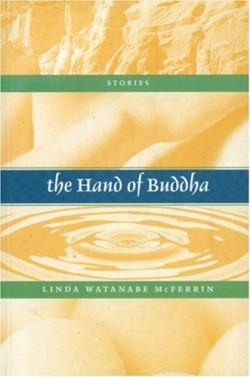The Hand of Buddha
In the lead story of McFerrin’s balanced and eloquent collection of short stories, a woman receives a curious fruit, called a Buddha’s hand, in the mail from a friend in Asia. The two sides of the fruit resemble hands in prayer, and seem lit from within, making it a clever analogy for the main character’s feelings toward her mother, who has Alzheimer’s. The woman must use all of her own inner light and energy, and especially her prayers, to achieve a level of compassion of grace in the situation. The story is one of many that draw on common themes and expands the subject matter toward larger issues.
McFerrin is adept at describing the concerns of women of various ethnic backgrounds, from different geographic regions of America, and showing that despite race, country of origin, or physical location, some feelings and difficulties are universal. In a story about a Mexican housekeeper that wants to better herself through study, McFerrin presents a woman torn between loyalty toward her friends and intellectual curiosity, which will take her away from her community: “Suddenly she no longer wanted to see Inez and LaRosa and the other maids. Their large brown eyes and smooth faces reflected back an image of herself that embarrassed her… Their world wouldn’t change.”
The stories, written with an either puckish charm or an airy elegance, depending on the subject matter, are simply well-told. The narrative method that McFerrin employs allows the reader to learn about a character quickly with only a few details, and become fascinated by what’s going to happen next. Each story seems loosely connected with the others, not by subject or common theme, but by continuity of feeling and focus. The housekeeper’s need for an intellectual challenge is a parallel to other situations, like a young erotica writer’s desire to break free from her profession, making the characters seem like a multitude of passionate women in a city blessed with diversity.
Although many characters stumble upon bad situations or dark epiphanies, McFerrin’s wry and quiet sense of humor shines through and balances light and shadow.
Reviewed by
Elizabeth Millard
Disclosure: This article is not an endorsement, but a review. The publisher of this book provided free copies of the book to have their book reviewed by a professional reviewer. No fee was paid by the publisher for this review. Foreword Reviews only recommends books that we love. Foreword Magazine, Inc. is disclosing this in accordance with the Federal Trade Commission’s 16 CFR, Part 255.

